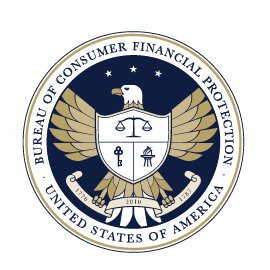The U.S. Court of Appeals for the Ninth Circuit recently held that the plaintiff carries the burden of proving the debt collector’s net worth to obtain statutory damages in a class action under the federal Fair Debt Collection Practices Act (FDCPA), 15 U.S.C. § 1692, et seq. A copy of the opinion in Tourgeman v. Nelson & Kennard is available at: Link to Opinion. A consumer financed the purchase of a computer through an installment loan. When the consumer defaulted, the creditor charged off the account and sold the debt to a third party. The third party referred the account to a law…
Posts tagged as “FDCPA”
The U.S. Court of Appeals for the Seventh Circuit recently held that service of a motion for default judgment directly upon a plaintiff consumer known to be represented by counsel did not violate the federal Fair Debt Collection Practices Act, where the plaintiff’s attorney had yet to file a formal appearance. In so ruling, the Seventh Circuit reversed the trial court’s judgment in favor of the consumer because the state procedural rule at issue required the motion to be served directly upon the consumer, thus triggering the safe harbor provision of subsection 1692c(a)(2) of the FDCPA, which prohibits direct contact with…
The U.S. Court of Appeals for the Seventh Circuit held that a mortgage field servicing company’s actions were too attenuated from its mortgage servicer client’s own debt collection efforts to be considered a debt collector under the federal Fair Debt Collection Practices Act (FDCPA). Accordingly, the Seventh Circuit affirmed the ruling of the trial court granting the company’s motion for summary judgment. A copy of the opinion in Schlaf v. Safeguard Property, LLC is available at: Link to Opinion. The plaintiff homeowners owned property that was subject to an FHA-insured mortgage loan serviced by a mortgage loan servicer. The plaintiffs defaulted…
The U.S. Court of Appeals for the Seventh Circuit recently concluded that collection letters sent to consumers offering to settle their debt but warning them that the settlement “may have tax consequences” did not violate the federal Fair Debt Collection Practices Act (FDCPA). The plaintiffs had argued that the letters were false and misleading because they were insolvent and, as such, would not have incurred any tax liability for any discharged debt. The Seventh Circuit rejected the argument, concluding that the term “may” only meant there could be tax consequences, and it was possible insolvent debtors would become solvent before settling…
The U.S. Court of Appeals for the Eighth Circuit recently held that seeking to collect compound interest in violation of state usury law results in a misrepresentation of the amount of a debt in material violation of the federal Fair Debt Collection Practices Act (FDCPA). In so ruling, the Eighth Circuit reversed and remanded the trial court’s judgment against the consumer, in part, as to his claims for alleged violation of the FDCPA, 15 U.S.C. 1692, et seq., based on a letter that sought to collect compound interest on the subject debt, in violation of Minnesota’s usury statute. A copy…
The U.S. District Court for the Northern District of Ohio issued its highly anticipated ruling on July 25 in a CFPB enforcement action against an Ohio debt collection law firm, concluding that the firm’s attorneys were “meaningfully involved” in the collections process and entering judgment in favor of the law firm. The decision followed an advisory jury’s verdict, which found the law firm’s pre-suit collection letters contained “false, deceptive, or misleading representations or means in connection with the collection of a debt” while rejecting a claim that the firm’s attorneys were not meaningfully involved in the debt collection process in…
In a follow up to an advisory jury’s verdict, finding that a law firm’s pre-suit collection letters contained “false, deceptive, or misleading representations or means in connection with the collection of a debt” while rejecting a claim that the firm’s attorneys were not meaningfully involved in the debt collection process in violation of the federal Fair Debt Collection Practices Act, the accused law firm filed its proposed findings of fact and conclusions of law on June 29, arguing that if their legal services were good enough for Richard Cordray when he held the office of Attorney General of the State…
A panel of the U.S. Court of Appeals for the Ninth Circuit recently held that a law firm’s effort to collect homeowner association (“HOA”) assessments through judicial foreclosure constitutes debt collection under the federal Fair Debt Collection Practices Act. In so ruling, for purposes of whether activity constitutes debt collection under the FDCPA, the Court distinguished judicial foreclosures that allow for deficiency judgments from non-judicial foreclosures that do not allow for deficiency judgments. A copy of the opinion in McNair v. Maxwell & Morgan, PC is available at: Link to Opinion. The plaintiff consumer purchased the subject property in Arizona subject…
On June 28, the U.S. Supreme Court granted a Petition for a Writ of Certiorari in Obduskey v. McCarthy & Holthus LLP that presents the question “whether the FDCPA applies to non-judicial foreclosure proceedings.” The borrower in the underlying case defaulted on his home loan and the mortgage servicer hired a law firm to pursue a non-judicial foreclosure. The borrower informed the law firm he was disputing the debt and the law firm, without responding to the dispute, proceeded with the non-judicial foreclosure. The borrower then filed a lawsuit against the mortgage servicer and law firm alleging, among other things,…
In a recently issued unpublished opinion, the U.S. Court of Appeals for the Fifth Circuit rejected the argument of the attorney defendant who owned a law firm and a debt-buying company that he was exempt under the federal Fair Debt Collection Practices Act (FDCPA) because he was a creditor “by proxy.” Specifically, the Fifth Circuit determined that the attorney, his law firm, and his debt-buying company were all distinct entities as a matter of law, such that his argument that he, as the owner of the debt-buying company, owned the debt and thus he did not qualify as a debt…
ND Indiana Grants Class Cert. Over Objections as to Standing, Commonality of Injury, ‘Consumer’ Debt


The U.S. District Court for the Northern District of Indiana recently concluded that the objective “unsophisticated consumer” standard applicable in the Seventh Circuit for whether there was a material misrepresentation under the federal Fair Debt Collection Practices Act (FDCPA) parallels the commonality requirement for class certification under Fed. R. Civ. P. 23(a). In addition, the District Court concluded that receiving a false and misleading dunning letter from a debt collector, as the plaintiff alleged, establishes an injury in fact to the plaintiff. According to the Court, even though the injury was intangible, it was concrete and particularized, thus establishing the…
An advisory jury, empaneled pursuant to Federal Rule 39(c)(1), recently returned an inconsistent verdict after trial in an action brought by the Consumer Financial Protection Bureau last year challenging that attorneys of a law firm specializing in the collection of debts were not “meaningfully involved” in collection activities engaged in by the firm in violation of the federal Fair Debt Collection Practices Act. A copy of the complaint in Consumer Financial Protection Bureau v. Weltman, Weinberg & Reis Co., L.P.A. is available at: Link to Complaint. The jury determined that the law firm’s pre-suit collection letters contained “false, deceptive, or misleading representations or…









